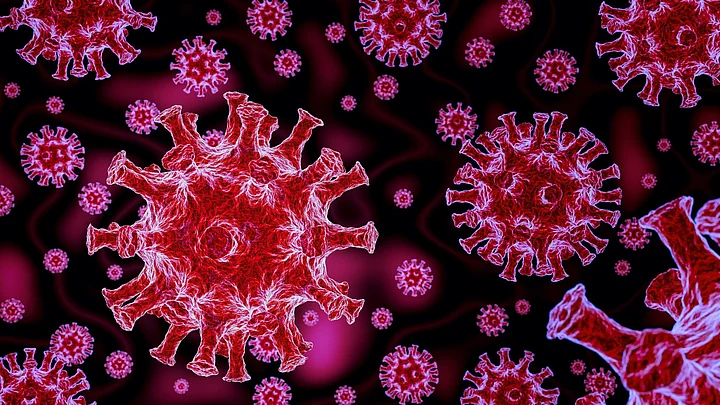The Delta variant, or the B.1.617.2 strain, was found to be the primary reason behind India’s dangerous second wave of the coronavirus. First found in India, the WHO has classified it as a variant of concern.
The Delta variant has now acquired the K417N spike mutation – to form the ‘Delta Plus’ or AY.1 variant. Maharashtra Health Minister Rajesh Tope said that 21 cases of the Delta Plus variant have been found in the state, news agency ANI reported.
What do we know about the mutation? Should we be worried?
What does a virus mutation mean?
- A mutation is a change in the genetic material, or the genome, of the virus.
- Mutations are quite normal and expected processes by which a strain takes on new variants.
- In most cases, mutations hardly have an impact on how the virus affects an individual.
- However, it is possible that the strain becomes more or less potent after mutating.
Where has the Delta Plus variant been observed?
- A recent Public Health England report says that 63 genomes of the Delta variant with the K417N mutation have been identified on the GISAID (a global science initiative that provides genomic data of influenza viruses), including six in India, as of 7 June, 2021.
- Thirty-six cases have been found in England.
- In two of these cases, more than 14 days had passed between the second dose of vaccination and the positive specimen, making them breakthrough infections.
What is its frequency in India?
As of now, its variant frequency is not much in India, tweeted Vinod Scaria, scientist at CSIR-Institute of Genomics & Integrative Biology (IGIB) .
Has it been classified as a variant of concern?
Not yet. As of now, it is only a variant of interest.
“This (Delta Plus) is a variant of interest. It has not yet been classified as a variant of concern. As per data available in public domain, this variant nullifies the use of monoclonal antibody. We will study & learn more about this variant.”Dr VK Paul, Member of Health, NITI Aayog
Do we need to be worried about this mutation?
Anurag Agarwal, CSIR-IGIB Director and pulmonologist, told news agency PTI that “There is no cause of concern due to the new variant in India as of now.”
He also said that fully vaccinated people will have to be tested against the variant to find out whether it shows significant escape from the immune response of the body.
Are vaccines effective against Delta Plus?
- While there is no evidence for this yet, Prof Shahid Jameel, one of India’s top virologists, told Karan Thapar in an interview for The Wire that he fears the ‘Delta Plus’ mutation might be able to evade both pre-existing immunity and immunity acquired by vaccines better.
- He said that this concern arises from the fact that the mutation found in ‘Delta Plus’ is identical to that of the South African Beta variant. The Beta variant has been found to be more resistant against the Johnson & Johnson vaccine.
Is the antibody cocktail effective against the new mutation?
- Evidence suggests that the K417N mutation shows resistance to Casirivimab and Imdevimab, the monoclonal antibodies that are part of Cipla and Roche’s antibody cocktail.
- The cocktail has recently received Emergency Use Authorisation from the Central Drugs Standards Control Organisation (CDSCO) in India.
Does this mean that the mutation can cause more severe disease?
- Resistance to the antibody therapy does not indicate higher virulence or severity of the disease, immunologist Vineeta Bal told PTI.
- The transmissibility of the virus will determine whether it spreads rapidly or not, she said.
- Therefore, with regards to individuals catching the virus, she said it may not be a matter worth worrying about.
